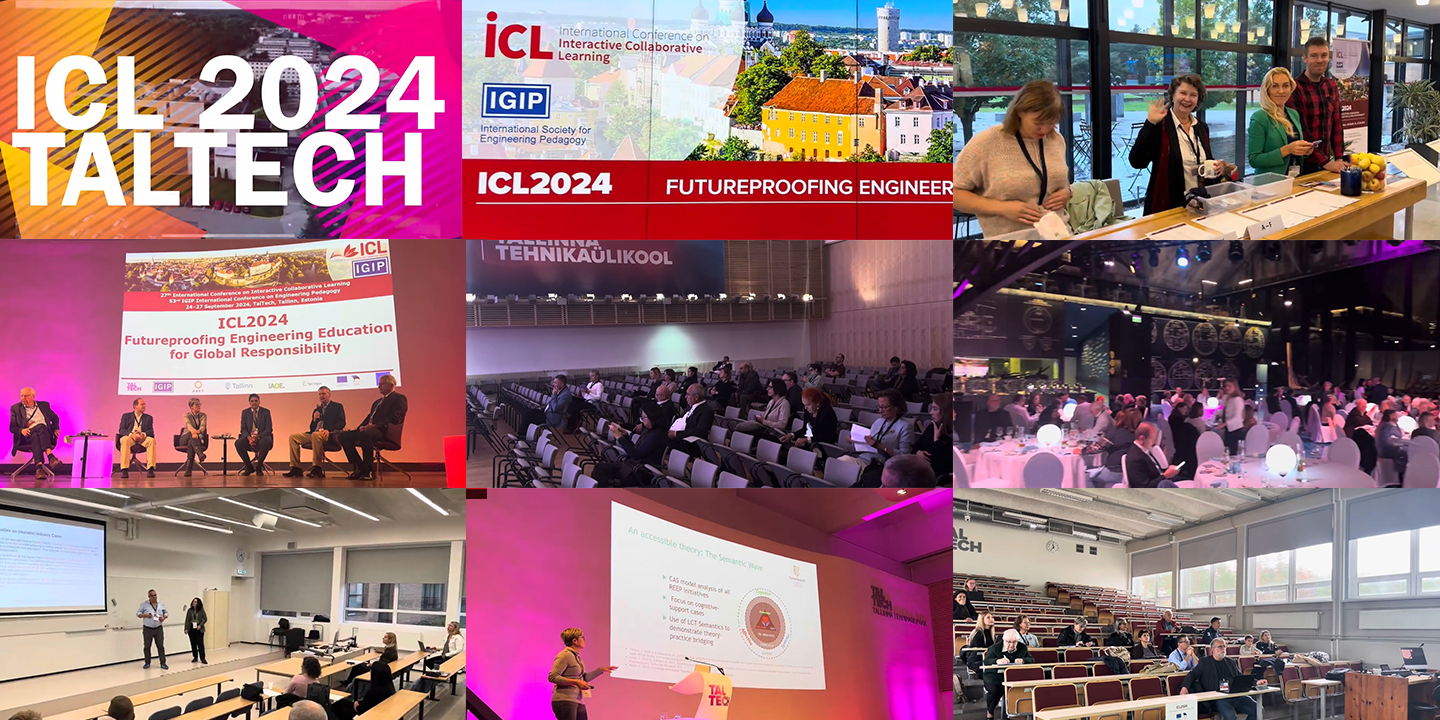
The 27th International Conference on Interactive Collaborative Learning and the 53rd IGIP International Conference on Engineering Pedagogy were successfully held from September 24 to 27, 2024, at TalTech in Tallinn, Estonia. Approximately 300 participants from 51 countries gathered to engage in this significant event.
The conferences featured a diverse range of keynote speakers who presented on various important topics.
Uriel Cukierman from UTN, Argentina, addressed the question "Are the Engineering Professors Prepared to Teach Engineering?" His presentation likely sparked discussions about the capabilities and readiness of engineering professors in the current educational context.
Dana Dobrovská from the Technical University of Prague, Czech Republic, focused on "Students′ Attitudes Towards AI in Teaching and Learning," exploring the perspectives of students regarding the integration of AI in educational processes.
Torsten Fransson from KTH Stockholm, Sweden, delved into "Educator-to-Educator collaboration in Higher Education: Possibility or Not Even Wished?" examining the potential and challenges of collaboration among educators in higher education.
Michael Milligan from ABET, Baltimore, MD, USA, discussed "Strengthening International Collaborations for a Sustainable Future," emphasizing the importance of global partnerships for the betterment of education and sustainable development.
Raivo Sell from TalTech, Estonia, presented on "Future Mobility: Challenges and Barriers," highlighting the issues and obstacles in the realm of future transportation and mobility.
Karin Wolff from Stellenbosch University, South Africa, introduced a "community of practice approach to engineering educator development," suggesting a collaborative model for the growth and development of engineering educators.
Throughout the four-day event, participants had the opportunity to engage in in-depth discussions, share their research and experiences, and network with peers from around the world.
The conferences provided a platform for the exchange of ideas and best practices, contributing to the advancement of the fields of interactive collaborative learning and engineering pedagogy on an international scale.
As the event concluded, it was clear that the conferences had successfully brought together a global community of educators and professionals, laying the foundation for future collaborations and improvements in the field of engineering education.